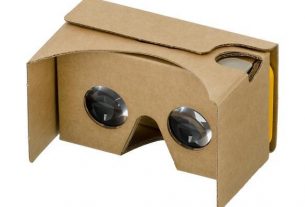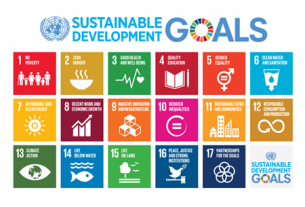From presentation and paper M. Tadros gave at WSIS 2018
There is no doubt as to the benefits of ICTs. They are reflected in areas such as governance, poverty alleviation, education, health, the environment and community development.
Link to sustainable goals (WSIS, 2016)
In WSIS 2016, a link was made between VR and the SDGs, and in particular goals 8 and 10:
- Goal 8: Promote inclusive and sustainable economic growth, employment and decent work for all. Virtual Reality will offer amazing new opportunities for development and growth creating a whole new range of jobs and businesses.
- Goal 10: Reduce inequality within and among countries. Virtual Reality makes humanity even closer reducing boundaries allowing immersion and presence anywhere. VR will help ensure that access to good education is available to everybody regardless of their financial status or geographical location.
The Three Problems
I see three problems with ICTs – aggravated even more in the case of VR:
1- Prohibitive costs of technology.
2- Designer costs of the gadgets.
3- In our love of, or optimism about, technology, we tend to lose sight of our target audience.
We tend to rush towards any new or relatively new technologies with enthusiasm – without really thinking of their effect and impact on the target communities. The technologies themselves are exciting and their potential is great, but exciting and great for whom? If we are talking sustainable development then where is the sustainability in this? And more importantly, sustainability for whom?
How will they- the target audience, the poor, or those for whom we want to ‘feel empathy’ – benefit? At what cost? Do the benefits outweigh the negatives?
Second Life comes to mind. Many companies, embassies and NGOs jumped on the idea of doing great work through Second Life. But it failed for many reasons, not least among them the lack of direction the expenses and the technology it needs to function, such as fast computers with large memory.
As with any new technology there are always unintended consequences some of which are positive, desired and productive, and others are negative, undesired and disruptive. It is understandable that everything has unintended consequences, but I will focus on the following:
- Are VR and AR gimmicks?
- Is their relationship to sustainable development an elitist perspective?
- If used in development, what about accessibility to such technologies to communities who could hardly afford food? Prohibitive expenses for computers let alone headsets.
- New technologies tend to keep women behind. What are we doing to help women in this regard?
- Should there be ethical frameworks for robotics?
As we know, with great technology comes great opportunity. We therefore need to acknowledge the positive effects of ICT and VR in particular. I have no doubt that it is an effective learning tools in technical education, especially dentistry, firefighting, operating equipment, vehicle prototyping etc. It could bring all of these techniques and technologies to the poor as well. It could and it might.
Emotions and empathy are not measurable outcomes. They create conversion in marketing terms but would we spend all this for empathy and an emotional reaction?
In SDGs we speak of eliminating hunger and enforcing gender equity, and other development goals. So let us ask, what or who is Virtual Reality, in its current stage, really targeting?
We have to recognize that:
- ICT is a means not an end: once we start using it as an end we will fail to use it purposefully. If we speak of user experience rules and principles, say for example, in education. This is great, but for whom? Who is our target audience? What do ‘they’ really want?
- Emotions and empathy are not measurable outcomes. They create conversion in marketing terms but would we spend all this for empathy and an emotional reaction? When we say for example, ‘we are doing untold stories, breaking silence and taboos.’ How can VR enable and measure a change in perspective?Occulus for example and HTC Vive say we will let you ‘travel to the impossible’ – but this is a sanitized version of travel. Is that the type of travel we want? Does empathy breed action?
- In robotics: what is its effect on the psyche? Are we creating unsustainable models and designs to reach sustainable development? It is true that robots do not need heat and light so there will be energy saving, but we need to look at who is doing the research and it needs to be civil society.
- Technology is not value neutral – with technology comes great responsibility. IoT comes with a great cost. Look at Facebook’s case. Technology cannot be left to the techies alone.
- Technology is not gender neutral either: several studies in cognitive areas show that. visual/spatial functioning.
- Technology comes with a physical cost – E-waste: are we causing a new set of problems? Just perhaps like the industrial revolution. Fast depreciation of computers. We need reusable, recyclable and up-gradable hardware and periphery.
Here is text from one of the major companies producing VR sets:
- Travel to the impossible. Get closer to ancient ruins than you ever could in real life. Travel instantly to any point on the globe, or the solar system, or beyond. Experience environments inhospitable for human life. Go on safari as one of the animals.
- Understand everyone. Literally walk a mile in another person’s shoes. Experience war zones, celebrations, life, death and everything in-between. Creating empathy for every human experience is a new frontier in VR.
So here are the questions to be asked:
- Is this what we consider development that apply to development goals?
- What is sustainability in ICT? It is meeting our current needs without compromising future generations to meet own needs. Our ability to develop models in design and methodology that are sustainable.
I believe we need to go beyond the novelty of the technology – beyond the gimmick, and we need to take a harder look at ourselves: what do we want with it? What is its real use?
In the end, are we truly putting the ‘Humans First’ principle?



